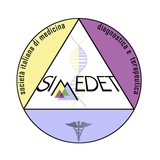Multiply #Recurrent #Clostridium difficile Infection in the United States: A Cohort Study
http://annals.org/aim/article/2636751/increasing-incidence-multiply-recurrent-clostridium-difficile-infection-united-states-cohort
Clostridium difficile infection (CDI), the most common health care–associated infection, often recurs. Fecal microbiota transplantation is increasingly used to treat multiply recurrent CDI (mrCDI). From 2001 to 2012, the annual incidence of CDI and mrCDI per 1000 person-years increased by 42.7% (from 0.4408 to 0.6289 case) and 188.8% (from 0.0107 to 0.0309 case), respectively. The increase in mrCDI incidence was independent of known risk factors for CDI. Those who developed mrCDI were older (median age, 56.0 vs. 49.0 years; adjusted odds ratio aOR per 10-year increase in age, 1.25 95% CI, 1.21 to 1.29) and were more likely to be female (63.8% vs. 58.7%; aOR, 1.24 CI, 1.11 to 1.38) and to have used antibiotics (72.3% vs. 58.8%; aOR, 1.79 CI, 1.59 to 2.01), proton-pump inhibitors (24.6% vs. 18.2%; aOR, 1.14 CI, 1.01 to 1.29), or corticosteroids (18.3% vs. 13.7%; aOR, 1.15 CI, 1.00 to 1.32) within 90 days of CDI diagnosis. Chronic kidney disease (10.4% vs. 5.6%; aOR, 1.49 CI, 1.24 to 1.80) and diagnosis in a nursing home (2.1% vs. 0.6%; aOR, 1.99 CI, 1.34 to 2.93) were also associated with increased risk for mrCDI.
Conclusion:
Relative to CDI, mrCDI incidence has disproportionately increased, indicating a rising demand for mrCDI therapies.
http://annals.org/aim/article/2636751/increasing-incidence-multiply-recurrent-clostridium-difficile-infection-united-states-cohort
Clostridium difficile infection (CDI), the most common health care–associated infection, often recurs. Fecal microbiota transplantation is increasingly used to treat multiply recurrent CDI (mrCDI). From 2001 to 2012, the annual incidence of CDI and mrCDI per 1000 person-years increased by 42.7% (from 0.4408 to 0.6289 case) and 188.8% (from 0.0107 to 0.0309 case), respectively. The increase in mrCDI incidence was independent of known risk factors for CDI. Those who developed mrCDI were older (median age, 56.0 vs. 49.0 years; adjusted odds ratio aOR per 10-year increase in age, 1.25 95% CI, 1.21 to 1.29) and were more likely to be female (63.8% vs. 58.7%; aOR, 1.24 CI, 1.11 to 1.38) and to have used antibiotics (72.3% vs. 58.8%; aOR, 1.79 CI, 1.59 to 2.01), proton-pump inhibitors (24.6% vs. 18.2%; aOR, 1.14 CI, 1.01 to 1.29), or corticosteroids (18.3% vs. 13.7%; aOR, 1.15 CI, 1.00 to 1.32) within 90 days of CDI diagnosis. Chronic kidney disease (10.4% vs. 5.6%; aOR, 1.49 CI, 1.24 to 1.80) and diagnosis in a nursing home (2.1% vs. 0.6%; aOR, 1.99 CI, 1.34 to 2.93) were also associated with increased risk for mrCDI.
Conclusion:
Relative to CDI, mrCDI incidence has disproportionately increased, indicating a rising demand for mrCDI therapies.
annals.org
Incidence of Multiply Recurrent | Annals of Internal Medicine | American College of Physicians
Background: Clostridium difficile infection (CDI), the most common health care–associated infection, often recurs. Fecal microbiota transplantation is increasingly used to treat multiply recurrent CDI (mrCDI). Objective: To determine whether the incidence…
